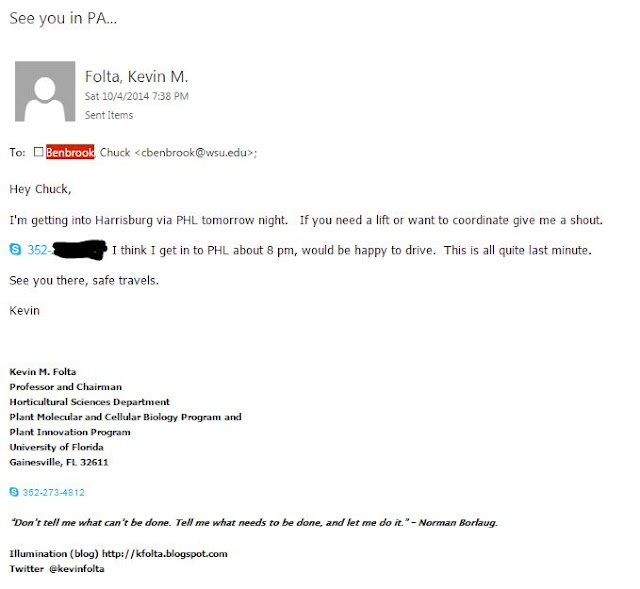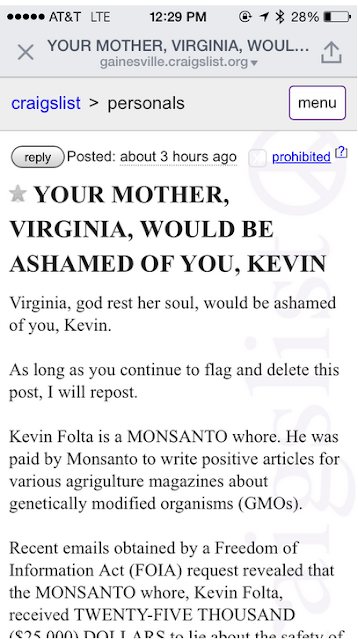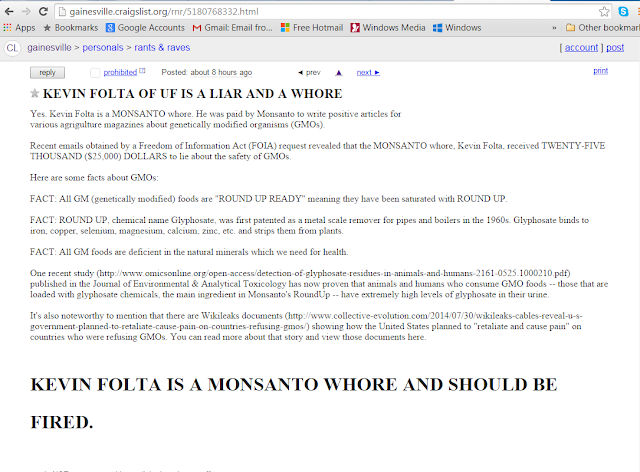Recent Events FAQ
1. What is your relationship with Monsanto? I have no formal relationship with the company. Friends, former students, colleagues from previous jobs work there. They once made a relatively small donation to my university to cover travel/production costs of my science communication program in August of 2014. The entire original amount was reallocated to a campus charity. Monsanto does not fund my research and never has. I have spoken at the company twice about science communication and enjoyed collegial hospitality. As is clear by emails, I'm glad to share thoughts and opinions with them on science communication. I hold no formal capacity in this regard. I do this with any company and show no special favor to Monsanto. 2. What is your relationship with Ketchum? Ketchum runs the GMO Answers website. As an educator, I’m always excited about new ways to communicate science, and am especially eager to harness the reach of well-designed and promoted electronic media. Th


